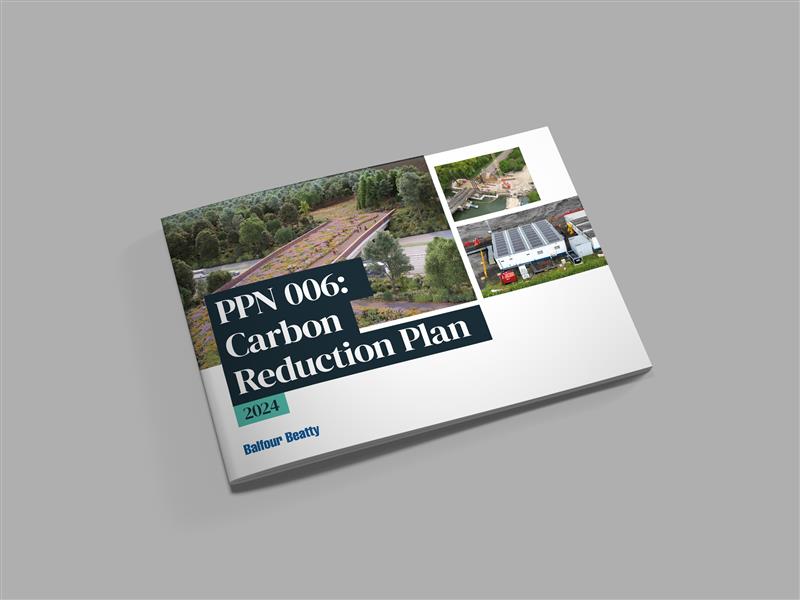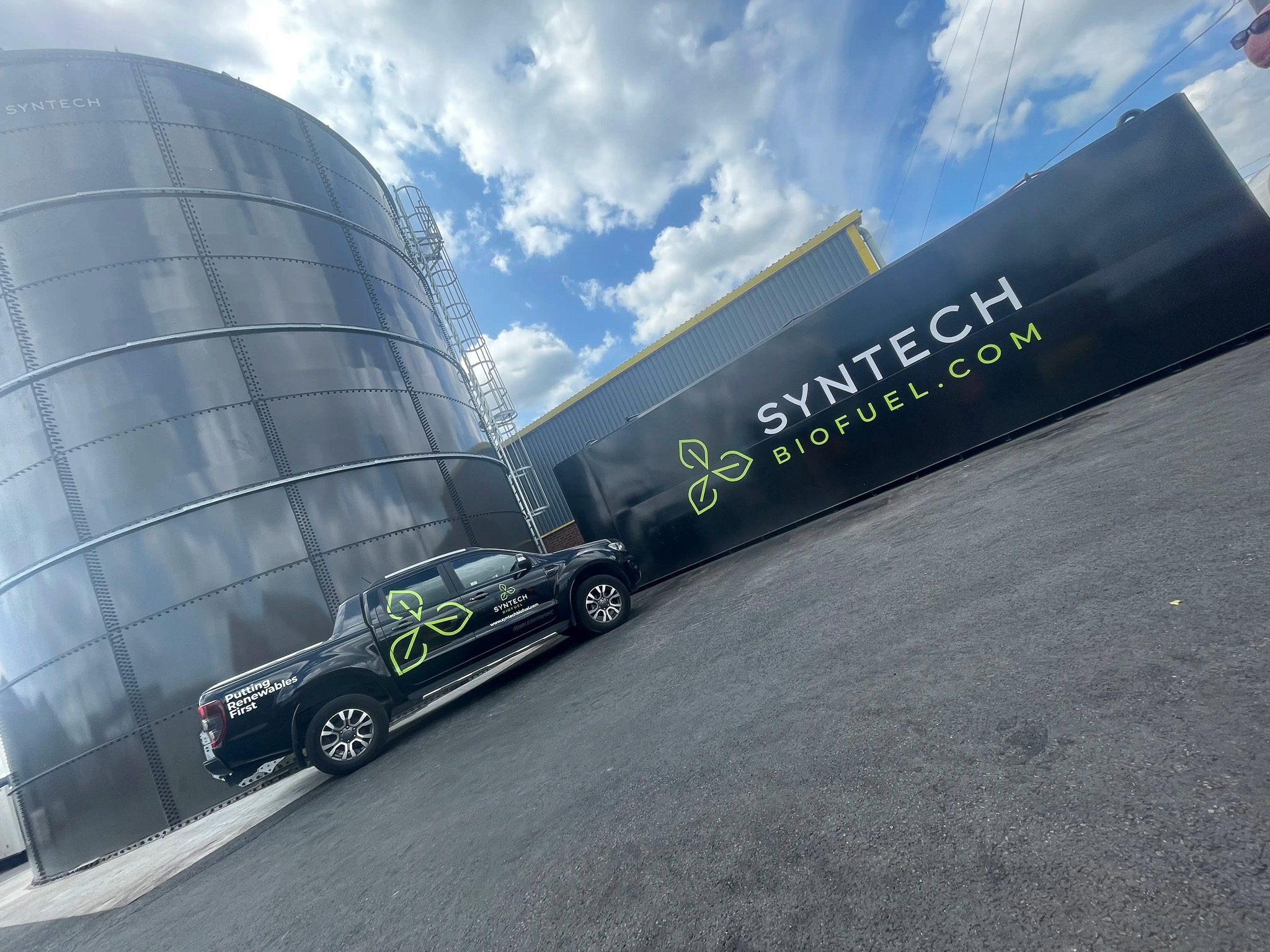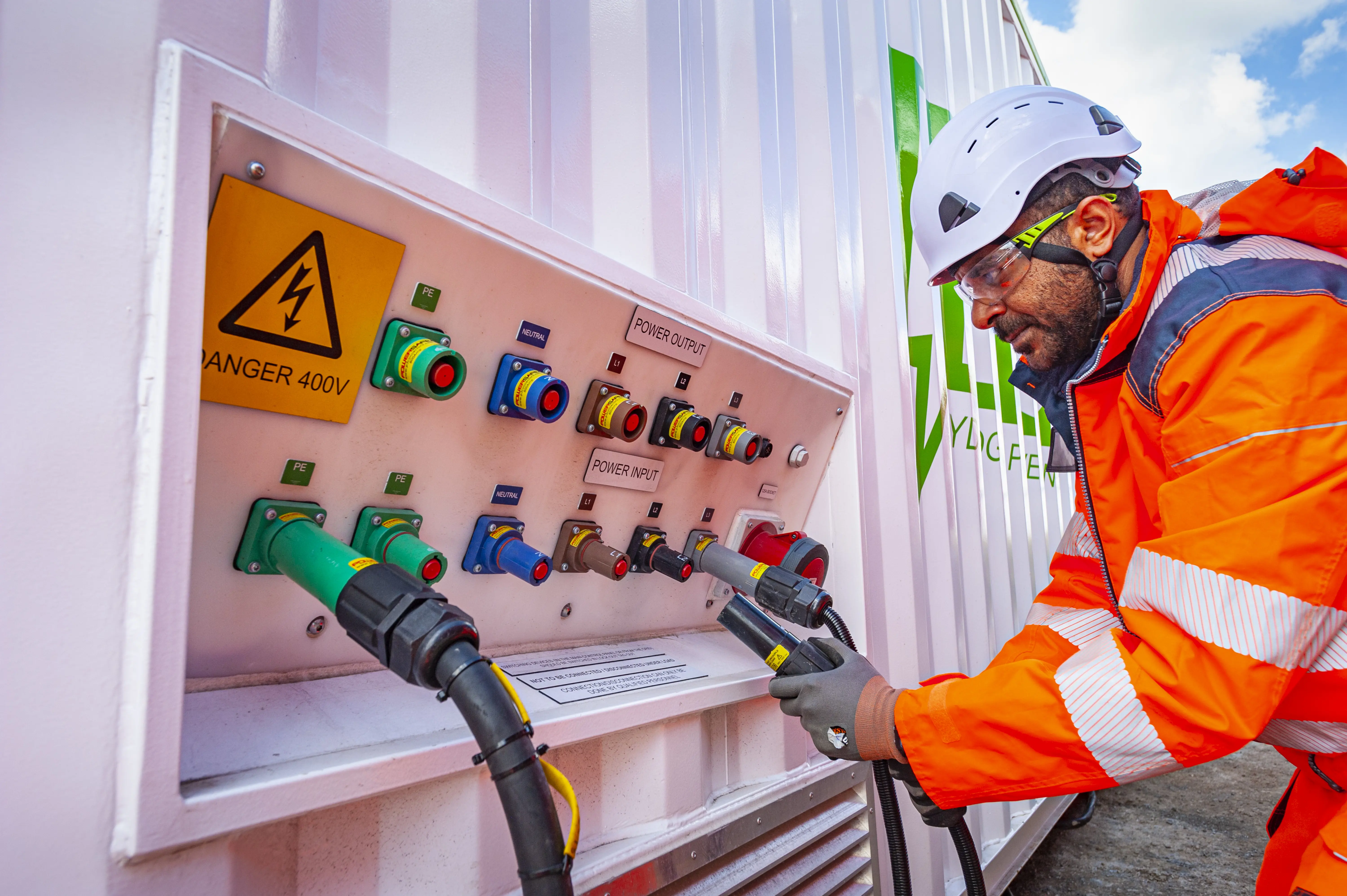In the UK, around 70% of our Scope 1 carbon emissions comes from the fuel we directly purchase for our plant, fleet and generators. To reduce emissions from these sources, we have developed a three pronged approach of efficiency, electrification and alternative fuels. Supporting this work, we have also implemented the following minimum standards across our UK operations:
- Deploying EcoSense cabins which produce up to 30% less carbon emissions, on all new projects.
- Using our EcoNet energy management solution on projects and contracts with four or more cabins. EcoNet reduces energy use by automatically turning off equipment when it is not in use and selecting the lowest carbon energy sources from those available.
- Using our Power Profiler tool to develop the most carbon and cost-efficient site compound set-ups.
- Implementing our fuel hierarchy, to ensure we select the right energy sources for our plant, fleet and generators.
- Reducing vehicle idling and improving plant and equipment utilisation through expert management of works, telematics and local management controls.
Complementing these minimum standards, in 2024, our Highways business achieved PAS 2080:2023 verification – the gold standard for buildings and infrastructure carbon management. Continuing this success, our Power Transmission and Distribution business achieved PAS 2080:2023 verification in January 2025. We are now embedding key elements of the standard into our UK-wide Business Management System, which is already certified to the ISO14001:2015 environmental management systems standards, to help other Business Units continue progressing towards a verified carbon management approach.






